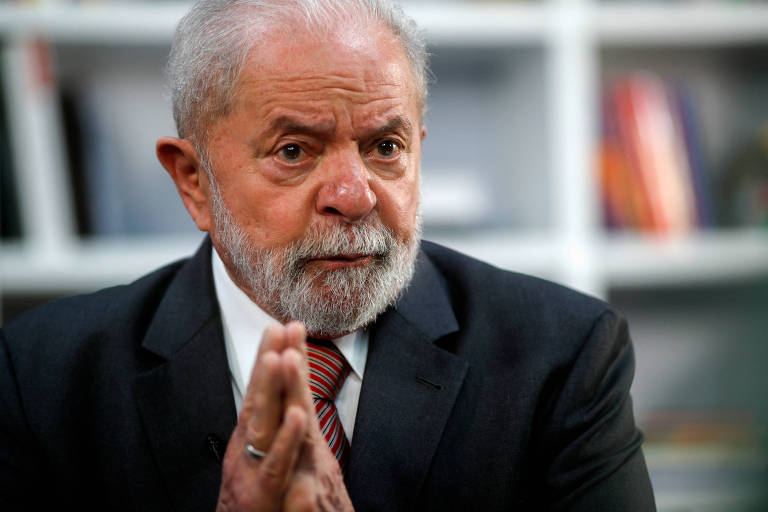Goldman Sachs, one of Wall Street’s giants, sees former President Luiz Inácio Lula da Silva (Workers’ Party, PT, left) as the favorite to win the elections in Brazil, despite a narrow margin against his rival, President Jair Bolsonaro (Liberal Party – PL, right), in the first round.
However, there is an expectation that the PT candidate will move more to the center and detail his proposals from an economic perspective, particularly the fiscal issue, according to Alberto Ramos, director of Macroeconomic Research for Latin America at Goldman Sachs.
“Lula da Silva ran a very ‘believe me, you know me, and I don’t need to tell you what I’m going to do’ campaign.

“We don’t know who the next Finance Minister will be. We know that the PT and Lula da Silva don’t like the spending cap, but nobody has taken the trouble to formulate who would be the substitute,” says the economist in an interview with Estadão.
THE MAIN PARTS OF THE INTERVIEW:
What is your assessment of the first round of elections?
I think that Lula da Silva is still the favorite, given that he is very close to 50% and needs to convert only about 20% of the votes that went to other candidates, assuming that he doesn’t lose any of those who voted for him in the first round and that those who didn’t vote won’t vote in the runoff either.
What is expected now from the candidates in terms of positioning?
Bolsonaro has exceeded what the polls showed, which may energize the base a little.
The governors elected in the first round may have a significant role in the campaign, especially in Minas [Gerais] and Rio [de Janeiro].
And Bolsonaro also has in his favor that we will continue to have a sequence of negative inflation numbers. And he can still boost social benefits a little more, as we saw with the announcement of the 13th Brazil Aid for women.
And in the case of Lula da Silva?
There is an expectation in the market that Lula da Silva will have to move a little more to the center.
I think he has already moved a lot to the center because he chose Alckmin as vice president and, by all the political and rhetorical positioning, made a strong appeal to the useful vote.
I don’t think there is much more to be extracted from this strategy because further to the center, it is almost right.
But Lula da Silva ran a campaign like ‘believe me, you know me, and I don’t need to tell you what I’m going to do’.
Basically, we don’t know who will be the next Minister of Finance. We know that the PT and Lula da Silva do not like the spending cap, but nobody has bothered to formulate what the substitute would be.
We don’t know what kind of tax reform the PT will pursue or whether they will try to approve an administrative reform.
It may be that, in this context of a more competitive election, the campaign will decide to give a little more specificity to some of the proposals. Or not.
I don’t expect they will announce who will be the Minister of Finance.
There is concern about the spending cap, regardless of the winner. Do the two candidates still have more to signal in this area?
The studies that have been made public, prepared by the Economic Policy Secretariat – who are civil servants, are not necessarily members of the Bolsonaro party and may continue in the next Lula da Silva administration – are for a ceiling that is very similar to the one we have today, but that raises spending a little in real terms.
On the PT side, there is no clarity. I met with people from the PT, and what I heard is that the ceiling has to be ‘flexible, simple, credible, and counter-cyclical’ and that, in addition, it must leave room to increase public investment, which has been very low in recent years, and to pursue redistributive policies.
In this very abstract characterization, it seems a ceiling that limits little. It is much easier to say what the characteristics of a good anchor are than to formulate what that ceiling is exactly.
Does the composition of the elected Congress change the expectations for a new government’s reform agenda and fiscal policy?
I think this Congress, with more center-right representation, may be more resistant to certain types of policies such as increasing the tax burden, wealth tax, and things like that.
But it is a very fluid Congress, and the parties don’t have a very strong ideological and programmatic identity.
Maybe, if Lula da Silva is elected, he will find a Congress that is a little more feisty.
Would a scenario of Lula da Silva being elected, with a more conservative Congress, be good?
It would be good if whoever is elected had governability.
Whether Bolsonaro or da Silva, I think they will be able to compose a political base in Congress, but none of them will be able to have a political base that is very stable or very reliable.
I think having a Congress that acts as a containment barrier to more extreme and radical proposals, possibly coming from a PT government, is a good thing.
It’s something that the market would look favorably on.
With information from InfoMoney

